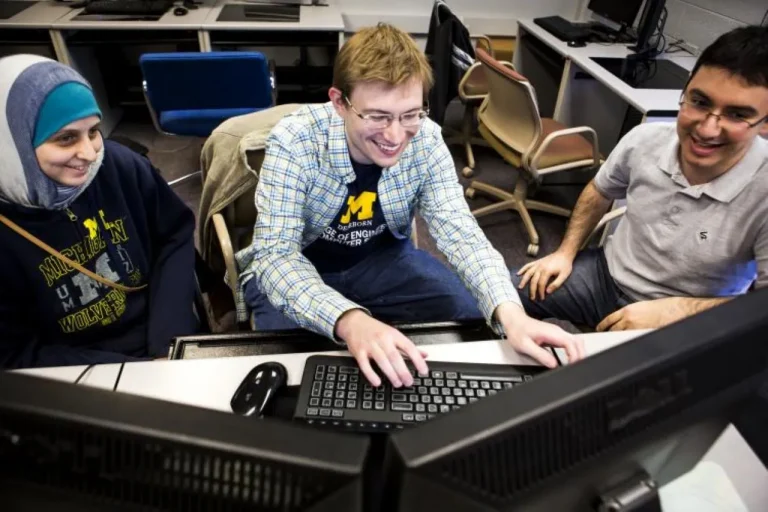What Does It Mean To Believe In Science Over Religion?
In an age of rapidly advancing technology and scientific discoveries, the line between science and faith is increasingly blurred for many people. If you feel yourself siding more with science over religion, you’re not alone.
If you’re short on time, here’s a quick answer: Believing in science over religion means trusting empirical evidence and the scientific method as the most valid ways to understand natural phenomena rather than religious scripture or authorities.
In this in-depth guide, we’ll examine what it really means to believe in science over religion. We’ll look at the key differences between the scientific and religious worldviews, reasons some choose science, and how to reconcile science and faith.
With a balanced examination of this complex issue, you’ll gain greater insight into your own perspective on science versus religion.
Defining the Science vs. Religion Debate
The debate between science and religion has been a topic of discussion for centuries. It revolves around the question of whether one should prioritize scientific knowledge and evidence or rely on religious beliefs and teachings.
To fully understand this debate, it is important to explore its history, examine the common arguments on both sides, and consider whether science and religion are inherently incompatible.
Brief history of the debate
The roots of the science vs. religion debate can be traced back to the time of ancient philosophers and thinkers. In ancient Greece, philosophers like Aristotle and Pythagoras sought to explain the natural world through observation and reason.
However, religious beliefs and rituals still played a significant role in their lives. The debate gained more attention during the Scientific Revolution in the 16th and 17th centuries when scientific discoveries challenged religious doctrines.
Figures like Galileo Galilei and Nicolaus Copernicus faced opposition from religious authorities for their heliocentric views, which contradicted the prevailing religious teachings of the time.
Throughout history, the debate has continued to evolve, with scientists and religious leaders often finding themselves at odds over various issues. From the theory of evolution to the origins of the universe, clashes between scientific findings and religious beliefs have sparked intense debates and controversies.
Common arguments on both sides
Those who advocate for science argue that it is based on empirical evidence and rigorous testing, allowing for constant refinement and improvement of knowledge. They emphasize the importance of critical thinking and the scientific method in understanding the natural world.
Science proponents often view religious beliefs as subjective and based on faith rather than evidence.
On the other hand, proponents of religion argue that faith provides a moral compass and answers questions that science cannot address, such as the meaning and purpose of life. They believe that religious teachings offer spiritual guidance and provide a sense of belonging and community.
Some argue that science, while valuable in its own right, cannot fully explain the complexities of the human experience or the existence of a higher power.
Are science and religion inherently incompatible?
The question of whether science and religion are inherently incompatible is a complex one. While some see them as opposing forces, others argue that they can coexist harmoniously. Many scientists and religious individuals find ways to reconcile their beliefs by adopting a nuanced perspective that acknowledges the value of both science and faith.
It is important to note that science and religion often explore different realms of knowledge. Science focuses on understanding the physical world and natural phenomena through observation and experimentation, while religion delves into matters of spirituality, morality, and existential questions.
They can be seen as complementary rather than contradictory.
Ultimately, the debate between science and religion highlights the diversity of human perspectives and the complexity of finding answers to life’s fundamental questions. It is a conversation that continues to evolve as new scientific discoveries and religious interpretations emerge.
Key Differences Between the Scientific and Religious Worldviews
Approaches to acquiring knowledge
The scientific and religious worldviews have fundamentally different approaches to acquiring knowledge. In science, knowledge is obtained through observation, experimentation, and the use of empirical evidence.
Scientists rely on the scientific method to formulate hypotheses, test them through experiments, and draw conclusions based on the data collected. This emphasis on evidence-based reasoning allows scientific knowledge to evolve and adapt as new information becomes available.
On the other hand, religious beliefs are often based on faith, revelation, and sacred texts. Religious practitioners rely on spiritual experiences, teachings, and traditions to understand the world and their place in it.
Religious knowledge is often seen as transcendent, derived from a higher power or divine source.
The different approaches to acquiring knowledge in science and religion can lead to contrasting interpretations of the world and its phenomena.
Perspectives on the natural world and humanity
The scientific worldview sees the natural world as governed by natural laws that can be understood through systematic observation and experimentation. Scientists seek to explain natural phenomena through evidence-based explanations and theories.
They often emphasize the importance of understanding the physical and material aspects of reality.
Religious worldviews, on the other hand, often see the natural world as a creation of a higher power or deity. They attribute purpose and meaning to the existence of the natural world and humanity. Religious perspectives often emphasize the spiritual and metaphysical aspects of reality, exploring questions of morality, purpose, and the nature of existence.
These contrasting perspectives can lead to different understandings of human nature, the origins of life, and the purpose of existence.
Sources of authority
In the scientific worldview, the primary source of authority is the scientific community. Scientists rely on peer-reviewed research, academic institutions, and scientific organizations to establish the validity of their findings.
The scientific community operates on a system of checks and balances, with rigorous standards for methodology, replication, and peer review to ensure the reliability of scientific knowledge.
In contrast, religious worldviews often place authority in sacred texts, religious leaders, and religious institutions. Sacred texts, such as the Bible, Quran, or Torah, are considered to contain divine truths and guidance.
Religious leaders and institutions play a central role in interpreting and disseminating religious teachings.
It’s important to note that these sources of authority can vary within both science and religion, and individuals may have different interpretations and beliefs even within the same worldview.
Why Some Prefer Science Over Religion
In today’s society, there is a growing number of individuals who place their trust in science over religion. This preference can be attributed to several factors that shape their beliefs and choices. Understanding these reasons can shed light on the increasing popularity of scientific inquiry and the decline in religious affiliation.
Distrust in religious institutions
One significant reason why some people lean towards science is the growing distrust in religious institutions. Scandals involving religious leaders, financial improprieties, and abuse of power have eroded people’s faith in organized religion.
As a result, individuals are turning to science as a more objective and trustworthy source of knowledge. Science is seen as a discipline that relies on empirical evidence, peer review, and rigorous methodology, which can provide a sense of security and reliability.
Appeal of empiricism and skepticism
Science appeals to many because of its emphasis on empiricism and skepticism. The scientific method encourages individuals to question assumptions, challenge established beliefs, and constantly seek evidence-based explanations.
This approach fosters critical thinking and encourages individuals to rely on observable facts rather than faith-based assertions. The appeal of this rational and evidence-driven approach is often seen as more intellectually satisfying than relying solely on religious dogma.
Perceived conflicts with scientific theories
Some individuals choose to prioritize science over religion due to perceived conflicts between certain religious doctrines and scientific theories. Evolution, for example, has been a contentious topic within religious communities.
The overwhelming evidence supporting the theory of evolution has led many to question the literal interpretation of religious texts that conflict with scientific consensus. This tension often leads individuals to favor scientific explanations over religious ones.
It’s important to note that the preference for science over religion does not imply a dismissal of spirituality or a lack of moral values. Many individuals who prioritize science still find meaning and purpose outside of religious institutions.
They may draw inspiration from scientific discoveries, marvel at the complexity of the universe, and find comfort in the wonders of nature.
Ultimately, the choice between science and religion is a deeply personal one, influenced by a variety of factors. It is essential to respect individual beliefs and foster open dialogue that promotes understanding and tolerance among those who hold different perspectives.
Reconciling Science and Faith
When it comes to the intersection of science and religion, there are various perspectives on how these two realms can coexist. One approach is the non-overlapping magisteria perspective, which suggests that science and religion address different aspects of human life and should not be seen as conflicting.
According to this viewpoint, science focuses on explaining the natural world through empirical evidence and observation, while religion deals with questions of meaning, purpose, and morality.
Non-overlapping magisteria perspective
In this perspective, proponents argue that science and religion have different domains of authority, and therefore, there is no need for conflict between the two. They believe that science can provide answers to questions about the physical world, while religion offers guidance on spiritual matters.
This perspective allows individuals to embrace both scientific knowledge and religious beliefs without feeling a sense of contradiction.
For example, a person who believes in the non-overlapping magisteria perspective may accept the scientific theory of evolution as an explanation for the diversity of life on Earth, while also holding religious beliefs about the origins of life.
They see science and religion as complementary rather than conflicting.
Looking beyond literal interpretations
Another way to reconcile science and faith is by looking beyond literal interpretations of religious texts. Many religious traditions have metaphorical or allegorical aspects that allow for a more nuanced understanding of their teachings.
By interpreting religious texts symbolically or metaphorically, individuals can find compatibility between scientific discoveries and their faith.
For instance, some religious believers view the creation story in their sacred texts as a metaphorical account of the origins of the universe rather than a literal description. This allows them to reconcile scientific evidence, such as the Big Bang theory, with their religious beliefs about creation.
Finding alignment in values
While science and religion may not always agree on specific factual claims, they can often find alignment in shared values. Both science and religion can promote virtues such as compassion, empathy, and respect for the natural world.
By focusing on these shared values, individuals can navigate the relationship between science and faith.
For example, both science and many religious traditions emphasize the importance of caring for the environment. Whether motivated by scientific evidence of climate change or religious teachings about stewardship, individuals can find common ground in working towards environmental conservation.
Living As Someone Who Believes in Science Over Religion
Being open-minded to new evidence
Living as someone who believes in science over religion means being open-minded to new evidence. Scientific beliefs are based on empirical evidence, rigorous experimentation, and peer-reviewed studies. As a result, scientific theories and explanations are subject to change when new evidence emerges.
Those who prioritize science understand the importance of constantly questioning and reevaluating their beliefs based on the latest scientific discoveries.
For example, when it comes to understanding the origins of the universe, scientific theories such as the Big Bang Theory have evolved over time as new evidence has been gathered. This willingness to adapt and accept new evidence is a fundamental aspect of living as someone who believes in science over religion.
Approaching debates calmly and rationally
Living as someone who believes in science over religion also involves approaching debates calmly and rationally. Science encourages critical thinking, logical reasoning, and evidence-based arguments. When engaging in discussions or debates, individuals who prioritize science strive to present their viewpoints in a respectful and logical manner, backed by scientific evidence.
Instead of relying on faith or personal beliefs, those who prioritize science seek to understand the underlying principles and evidence supporting their arguments. They are open to constructive criticism and are willing to change their stance if presented with compelling evidence.
By approaching debates in this way, individuals who believe in science foster a culture of intellectual growth and knowledge-sharing.
Finding community and identity
Believing in science over religion does not mean abandoning the need for community and identity. In fact, many individuals who prioritize science find a sense of belonging and purpose within scientific communities.
These communities provide a space for like-minded individuals to come together, share their passion for science, and collaborate on research and projects.
Online platforms, such as scientific forums and social media groups, allow individuals to connect with others who share similar interests and beliefs. These communities provide support, encouragement, and opportunities for intellectual growth.
Finding a community that aligns with one’s scientific beliefs can be a fulfilling and empowering experience, offering a sense of belonging and purpose.
Conclusion
The debate between science and religion continues to be complex for many people. If you find yourself leaning towards science, developing a nuanced perspective is important. With an open but critical mindset, we can continue advancing human knowledge while retaining our humanity.
By learning from both worldviews, we gain a richer understanding of our amazing universe.







